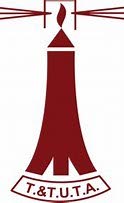Learning loss

Part II
STEPHEN MERRILL, writing for Edutopia hosted by the George Lucas Education Foundation in April, wrote with reference to the covid19 pandemic, “This crisis first exposed, and then cruelly amplified, the inequities bound up in issues of poverty, race, disability and rural isolation. Months into the pandemic attendance and attentiveness remain abysmal.”
While we acknowledge that Merrill’s discourse is situated within the continental USA, we are all painfully aware of this reality here in Trinidad and Tobago. Regarding our students’ academic progress, there is no denying that we have experienced a serious lag emerging from the shift from face-to-face schooling to online classrooms.
While we must also acknowledge that differentials in students’ performance existed pre-covid19, we also need to recognise “online learning, in both its hybrid and purely remote forms, has been an anaemic substitute for in-person instruction.”
While we may all concur that getting students back to physical school would be an ideal situation, it cannot simply be about our thirst to measure their progress with our high-stakes examination culture that continues to marginalise and disenfranchise some learners.
Ron Berger, American educator and author, puts forward the argument that the impact of “putting content before the child are serious and long-term.” Moreover, he asserts, “if all we come up with is passing out diagnostic tests to quantify learning loss and then track [students] into groups for remediation, it will be a terrible failure of imagination.”
The 2021-2022 academic year has started with teachers being required to administer a battery of diagnostic assessments on students, a situation that has left several of them frustrated in the process. It is important to note, however, that these tests will be conducted only with those students who have access to the online classroom.
What about those students who do not? What about those students in challenging and “at-risk” circumstances which have been exacerbated by the pandemic fallout; those students who have not had the benefit of any kind of instruction in the past 18 months? How will we capture data relevant to the latter population of students? More importantly, how will the data be used to respond to the needs identified?
Let us hope that the data derived will not be used to judge and rank students, teachers and schools, but rather, as Berger suggests, “to guide our response to individual student need, and spend our time and resources on creating an asset-based culture where everyone belongs.”
The schisms created by the pandemic has presented us with a unique opportunity to step back and evaluate our education system objectively. Are we going to acknowledge the built-in inequities we have inadvertently nurtured over the years and step outside of our taken-for-granted practices and do something about correcting them?
Over the years our policymakers have prided themselves on the notion of a meritocratic education system in which everyone has an equal opportunity. An earnest, cursory glance at contemporary TT will show where that has got us and we may want to ask ourselves: (1) is this the kind of society we want, and (2) if not, what kind of adjustment do we need to make to our education system to foster the society we need?
The time has come for us to move beyond equality to building a system that is equitable and socially just. If we are to recover from the losses sustained and go on to build a better more just society, this must become our mandate beginning with our education system since our schools are a microcosm of our society. The values we would like to see reflected in our wider society are not limited to the work of the home and/or the church, but are an activity of the socialising function of schools as social institutions.
Loss or retardation of academic progress is a reality and an important consideration as we move forward, but there are other critical issues that need to be addressed. As one local educator puts it, “We need to lose the old approaches, beliefs and values. Be disrupted and learn!” It therefore cannot be business as usual.

Comments
"Learning loss"